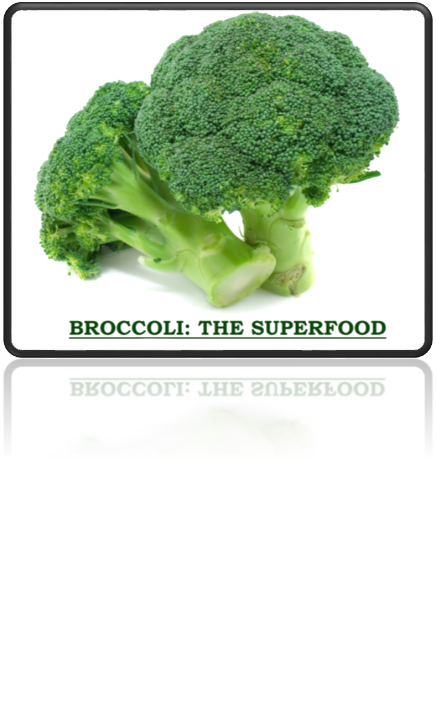
Introduction
Broccoli is a green vegetable plant and also edible. It comes from cabbage family. It has large flowering head, stalk and small leaves, and eaten as vegetable and salad. It is the dark green flowering head and light green stalk and surrounded by leaves. Broccoli originated from breeding landrace Brassica crops in the northern Mediterranean starting in about the six century BCE. Broccoli is classified in the Italica cultivar group of the species Brassica oleracea.
Nutrition
Broccoli has an impressive nutritional profile. It is “high in fiber, very high in vitamin C and has potassium, B6 and vitamin A, According to the American Institute for Cancer Research. Phytochemicals in broccoli are good for the immune system. Broccoli is very low in calories. Providing 31 calories per cup(91grams).
The nutrition facts for 1 cup (91grams) of raw broccoli are:
Carbs: 6 grams
Calories: 31
Fat: 0.4 grams
Fiber: 2.4 grams
Protein: 2.5 grams
Sugar: 1.5 grams
Water: 89%
Carbs
Broccoli’s carbs mainly consist of fiber and sugars.
However, the total carb content is very low, with only 3.5 grams of digestible carbs per (91grams).
Fiber
Fiber is significant part of a healthy diet. It helps in weight loss. Also helps in prevent diseases.
Protein
Protein is necessary for growth and maintenance. It is relatively high protein, which makes up 29% of its dry weight, compared to most vegetables.
Vitamin and Minerals
Broccoli contains a variety of vitamin and minerals.
Vitamin c an antioxidant, this vitamin is important for immune function and skin health.
Vitamin K1 broccoli contains high amounts of vitamin K1, which is important for blood clotting and may promote bone health.
Folate (Vitamin B9)
Folate important for pregnant women, folate is needed for normal tissue growth and cell function.
Manganese
This trace element is found in high amounts in whole grains, legumes, fruits, and vegetables.
Potassium
An essential mineral, potassium is beneficial for blood pressure control and heart disease prevention.
Iron
An essential mineral, iron has many important functions in your body, such as the transport of oxygen in red blood cells.
BENIFICIAL FOR HEALTH
Cancer prevention
The American Cancer Society notes broccoli’s isothiocyanates, including sulforaphane and indole 3 carbinol. These chemicals boost detoxifying enzymes and act as antioxidants, reducing oxidative stress. They also may affect estrogen levels, which may help reduce breast cancer risk.
Heart health
Broccoli can aid in heart health by helping to keep blood vessels strong. The sulforaphane in broccoli is also an anti-inflammatory and may be able to prevent or reverse damage to blood vessel linings caused by chronic blood sugar problems.
Eye health
Carrots are good for eye. And that’s because they contain lutein. Compound antioxidant that’s really good for eye health, and the broccoli is a great source to get it. Another antioxidant in broccoli called zeaxanthin is similarly beneficial.
Cholesterol reduction
Broccoli can help lower cholesterol because the soluble fiber in the vegetable binds with the cholesterol in the blood.
Anti – inflammatory benefits
Broccoli is a great anti – inflammatory and may slow down the damage to joints associated with osteoarthritis. Broccoli’s isothiocyanates and omega -3 fatty acids also help to regulate inflammation.
How to cook
Steamed broccoli may be one of the healthiest ways to cook broccoli because it’s quick and nutrients and vitamins won’t be lost in the cooking water, as can be the case with boiled broccoli.

The way that you prepare broccoli can affect the amount of nutrients you get, and which ones. people looking to broccoli for it’s anticancer benefits will want to be sure not to cook the vegetables to long.
Health risk
In general, broccoli is safe to eat, and any side effects are not serious. The most side effect is gas or bowel irritation, caused by broccoli’s high amounts of fiber. “According to The Ohio State University Wexner Medical Center, people taking blood-thinning medications should watch their broccoli intake, since the vegetable’s vitamin K content may interfere with the medication’s effectiveness. Those with hypothyroidism should also limit their intake of broccoli.”
Broccoli production and consumption
China s is the world’s largest producer of broccoli. India comes in second. In 2015, the highest consumption of broccoli recorded in China, and second India. The United States is third in production of broccoli.

Broccoli facts
- Broccoli originated in Italy, where it was developed from wild cabbage and has existed since about sixth century B.C.
- The Italian name for broccoli is “Broccolo” meaning the flowering top of a cabbage. The word comes from the Latin word “brachium,” which means branch or arm, a reflection of the vegetable’s treelike shape.
- Thomas Jefferson was a fan of broccoli and imported broccoli seeds from Italy, planting them at his home, Monticello, as early as May 1767.
- Another president, George H.W. Bush, was not a fan. He used his distaste for broccoli as a punch line in dozens of speeches. He once said, “I haven’t liked it since I was a little kid, and my mother made me eat it. And I’m president of the United States, and I’m not going to eat any more broccoli.” In response, broccoli growers sent 10 tons of the vegetable to the White House.
- In 2013, President Barack Obama announced that broccoli was his favorite food.
- California produces 90 percent of the broccoli grown in the United States.


You must be logged in to post a comment.